Read our latest magazine articles
To end (or start) the year right, we have listed all our magazine articles from August to December 2024. So you can read them again at your leisure during the Christmas break. In each article, a UG researcher talks about his or her field.
Autism in women: masking takes its toll
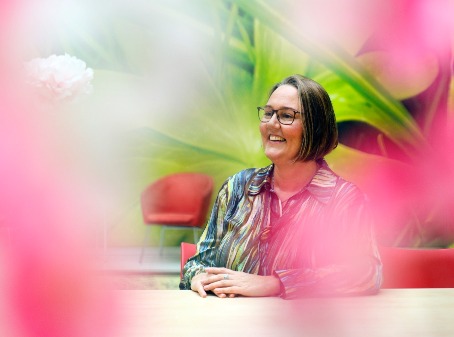
Women with autism are often diagnosed later than men; partly because they show socially desirable behaviour and mask their symptoms. Researcher Yvonne Groen developed a screening tool together with her colleagues to simplify the diagnosis and hopes to help women find the proper support faster. Read more
Time will tell: what tree rings reveal about the past
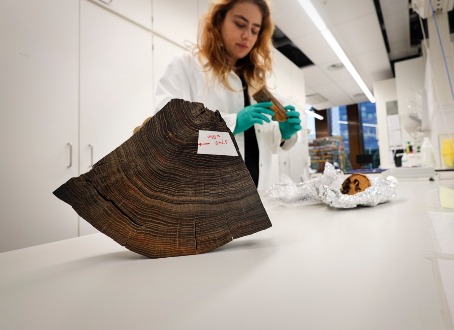
In an era where interdisciplinary collaboration is increasingly valued, the field of archaeological sciences stands out, as it seamlessly integrates with other fields such as geology, chemistry, biology, and physics. Isotope analysis of human or animal remains can give insight into past diets, while ancient DNA analysis of bones, teeth, or plants can reveal family connections, population movements, and domestication pathways. Pınar Erdil tells more about it. Read more
Exploring the applications of CogniGron's revolutionary technology
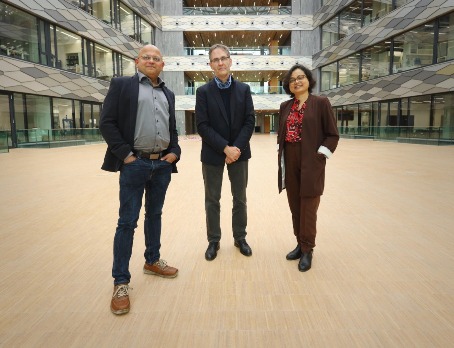
CogniGron's work in the field of neuromorphic computing, including its first startup, IMChip, has the potential to transform various industries and society as a whole. In the second part of our series about the Groningen Cognitive Systems and Materials Center, we will explore the applications of its revolutionary technology and its potential social impact. Read more
The fear of eating
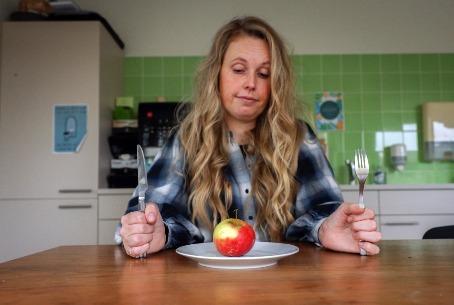
When you think of an eating disorder, your mind immediately goes to extreme weight loss or, contrarily, obesity. Eating disorders can take many shapes and forms, however, often manifesting in various ways and having various causes. Renate Neimeijer conducts research into eating disorders among children and young adults. She is a researcher and lecturer at the UG and a clinical psychologist at Accare, where she treats young people who suffer from anorexia and other eating disorders. Her current research focuses on ARFID: avoidant/restrictive food intake disorder. Read more
Bigger than femicide alone – the role of gender in violence
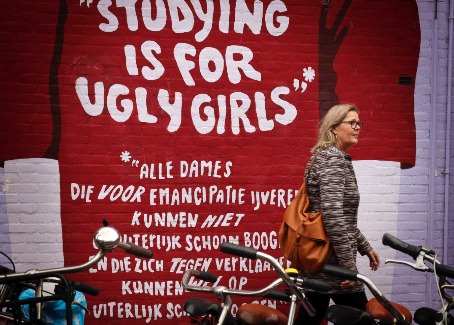
In the media and politics, there is rising attention to femicide — the murder of women, often by a partner or a former partner. For example, there is a bill to criminalize psychological violence, which often precedes femicide. In June, the cabinet also presented the ‘Stop Femicide!’ programme and, since this month, Groningen has set up the Support Centre Filomena, where women who are victims of violence or coercion can find support. Martina Althoff, associate professor of Criminology, welcomes this but is critical at the same time: ‘It is important to realize the role of gender in violence.’ That is because femicide is an extreme form of violence that is based on persistent ideas about gender. Read more
'Our executive education relies on the right combination of people'
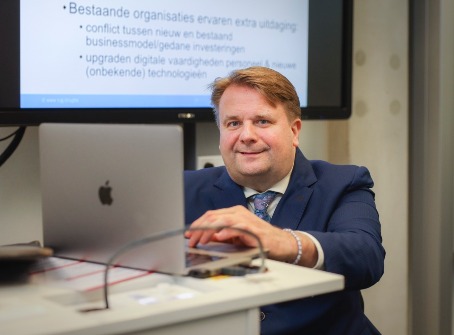
Educating regular students is a core task of the University. At the same time, so-called executive education is becoming increasingly important. With that type of education, the UG contributes to the continuous development of working people. Thijs Broekhuizen, Scientific Director of the University of Groningen Business School (UGBS) aims to advance staff members of companies, governments, and societal organizations by linking academic teaching to practice. ‘Noticing which people are a good match. That is a big part of the success.’. Read more
Do parents have any influence on whether their children wear 'pink' or 'grey' glasses?
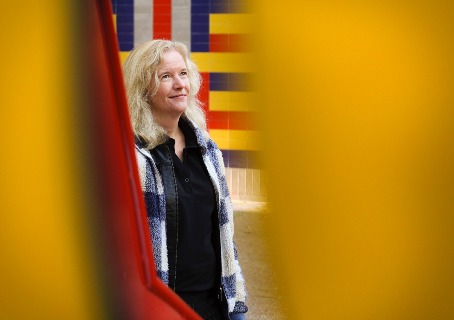
How does a positive outlook actually develop? How important is upbringing in this regard? And what kind of role does optimism actually play in the daily lives of parents and children? Charlotte Vrijen is trying to find an answer to these questions. She is researching the origin and development of optimism in children as they grow up. Read more
CogniGron: A revolution in future-proof computing
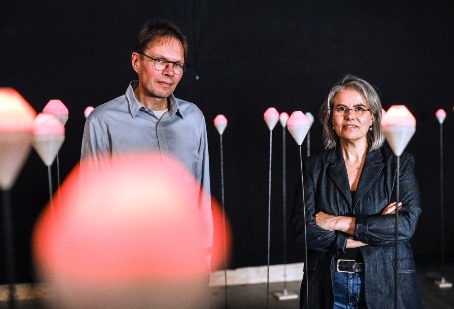
As a society, we are nearing the physical limits of improving digital computers. In order to keep developing them, we need to find other ways of computing. The Groningen Cognitive Systems and Materials Center (CogniGron) of the University of Groningen is at the forefront of this revolution, focusing on neuromorphic computing. In this first article of the two-part CogniGron series, Beatriz Noheda, Niels Taatgen, and Erika Covi tell us about drawing inspiration from the human brain to make smart devices even smarter. Read more
The threatening chasm in the countryside
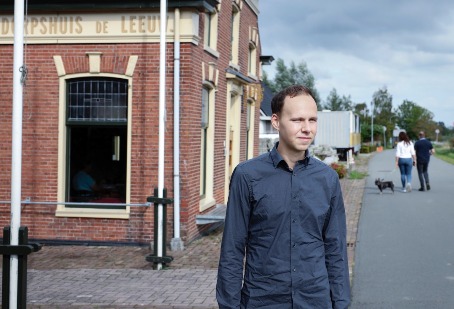
The supposed chasm between city and countryside is not that bad, according to Felix Pot. Thanks to the widespread car ownership among countryside residents, most of them experience little hindrance from the declining accessibility of shops and other facilities. Pot: ‘A threatening chasm in the countryside is more likely: between car owners and the people who do not have their own mode of transport. Policymakers should be focusing on that.’. Read more
Versatile sugars: more than sweetness
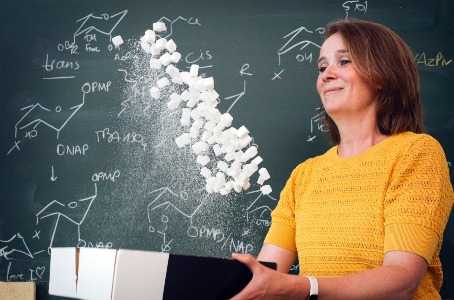
Marthe Walvoort, associate professor of Chemical Glycobiology, sees the transfer of knowledge about sugars as her mission. Sugars are both fattening and an essential source of energy. But they are so much more than that: sugars play a crucial role in biological functions, such as bacterial infections and the determination of your blood type. Read more
Tracking the tongue
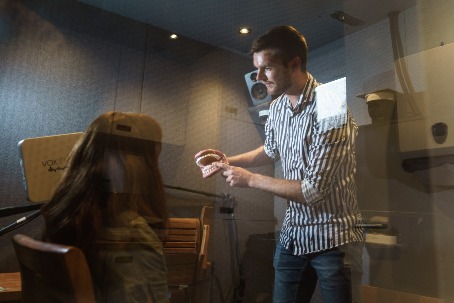
We do it every day: talking to others. Although it seems deceptively simple, verbal communication requires a precise and complex coordination of dozens of muscles, from the lungs and the larynx, to the tongue, the jaw, and the lips. Thomas Tienkamp and Teja Rebernik explain how fundamental research on articulation could help explain speech disorders and may contribute to the recovery of people with speech disorders in the future. Read more
Will there be a female American president?
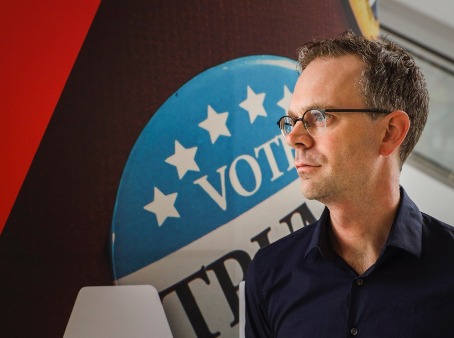
Historian Jelte Olthof is interested in the origins, workings, and influence of the US Constitution. How does the 1787 Constitution function in present-day America? An America that is rapidly changing and where, this year, a female president may be elected for the first time. Read more
How donkey poo and drinking coffee can be meaningful
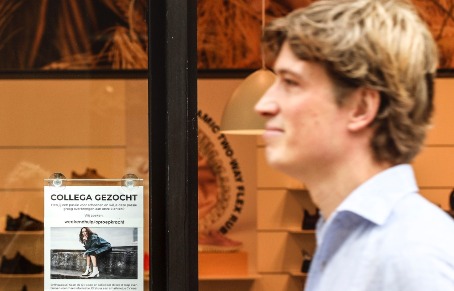
Cultural anthropologist and researcher Jelle Wiering likes to delve into meaningful work. His question is not necessarily what exactly constitutes meaning or why it is important. No, he is primarily looking for an answer to the question of which factors make work meaningful to us. For him, it is not about the big ideas but rather about the everyday things that give meaning. So, which things would that be? According to him, it would primarily be extended coffee breaks and donkey droppings. Read more
Vehicles without a driver: who is liable if things go wrong?
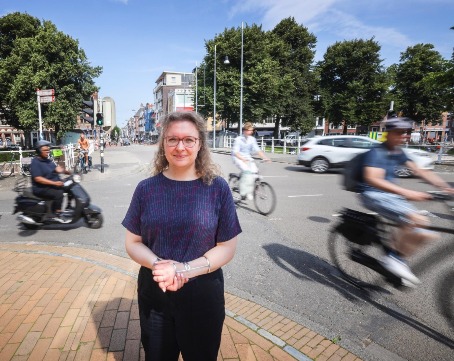
In the coming years, self-driving cars may increasingly become part of daily life. They are already driving around in China. But who is liable if things go wrong? Nynke Vellinga (Faculty of Law) still sees many obstacles: ‘Traffic law is based on the driver. This law becomes obsolete in the case of self-driving cars.’. Read more
Picking the wrong one again and again
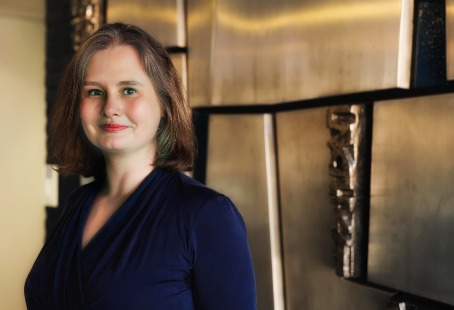
Julie Karsten is researching how experiences involving sexual misconduct influence adolescents’ online choice of partner. She focuses on whether people who have previously been ‘perpetrator’ or ‘victim’ look for one another. By better understanding these dynamics, Karsten hopes to contribute to a safer world for everyone. Read more
Preserving the web for researchers of the future
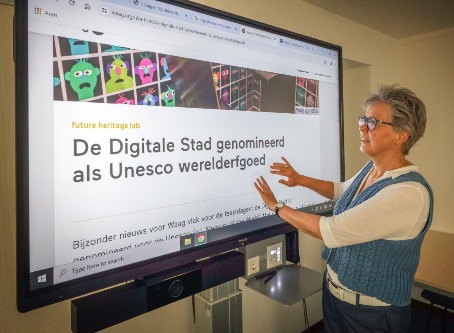
How do you archive the internet? What are you going to keep and what are you not going to keep? These are questions that Susan Aasman thinks about. The media historian and Professor of Digital Humanities at the UG is a strong advocate of preserving the digital cultural heritage. ‘Eighty percent of the history of the internet is already gone.’. Read more
Developing proteins with a language model
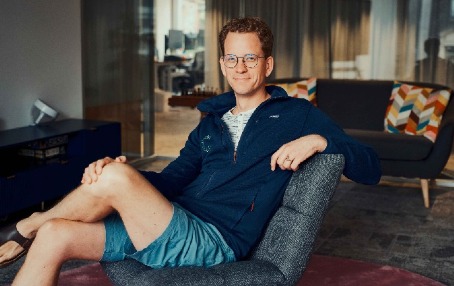
Stef van Grieken is the new UG Alumnus of the Year. In 2021, he founded a company, Cradle, that deploys Artificial Intelligence (AI) to design better proteins. In less than two years, the first multinationals were already knocking on his door. ‘In 20 years’ time, I want to be able to say: I used my knowledge and expertise to do the right thing.’. Read more
The knotty issue of holding countries responsible for cyberattacks
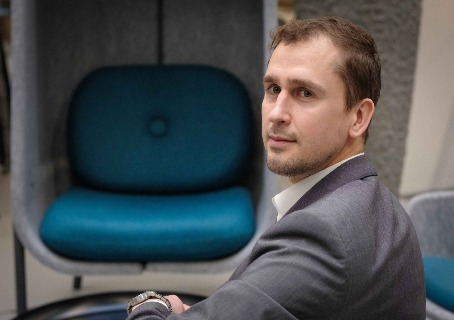
Evgeni Moyakine is investigating whether countries can be held responsible for cyberattacks by hacker groups. He believes that the standards set by international law regarding the burden of proof are too stringent. In the war in Ukraine, digital attacks are already in use as weapons of war. Read more
| Last modified: | 19 December 2024 10.57 a.m. |
More news
-
24 March 2025
UG 28th in World's Most International Universities 2025 rankings
The University of Groningen has been ranked 28th in the World's Most International Universities 2025 by Times Higher Education. With this, the UG leaves behind institutions such as MIT and Harvard. The 28th place marks an increase of five places: in...
-
05 March 2025
Women in Science
The UG celebrates International Women’s Day with a special photo series: Women in Science.
-
16 December 2024
Jouke de Vries: ‘The University will have to be flexible’
2024 was a festive year for the University of Groningen. In this podcast, Jouke de Vries, the chair of the Executive Board, looks back.
